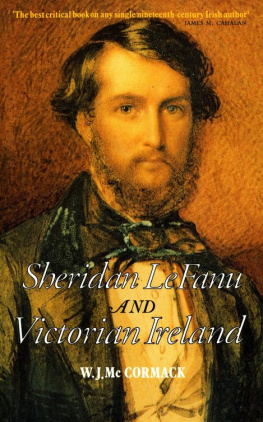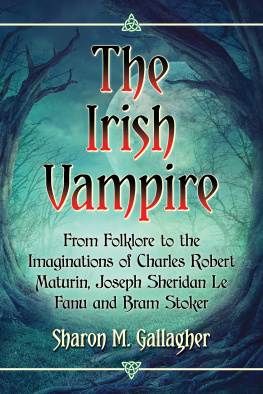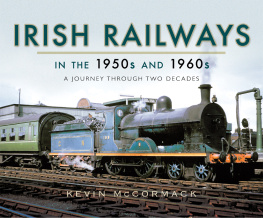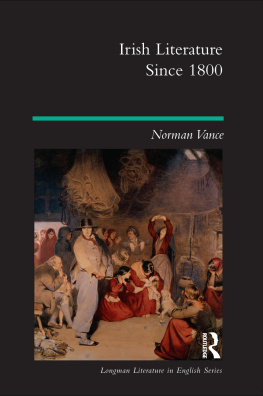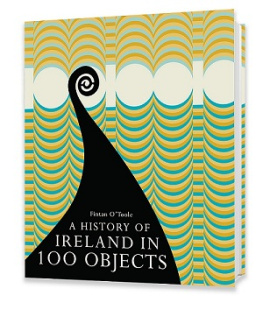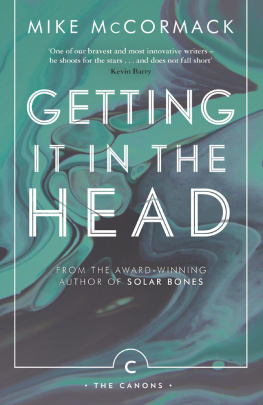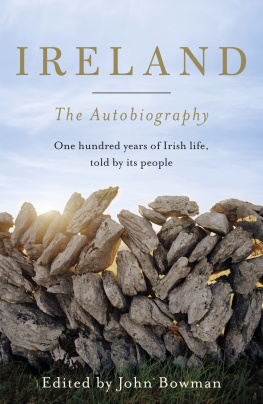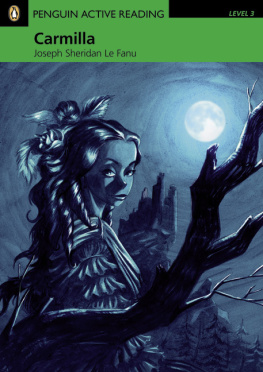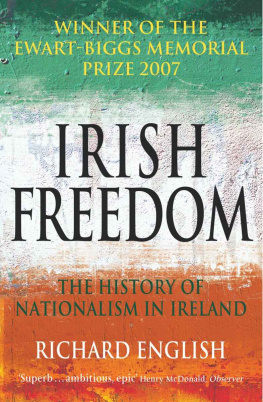W. J. McCormack - Sheridan Le Fanu and Victorian Ireland
Here you can read online W. J. McCormack - Sheridan Le Fanu and Victorian Ireland full text of the book (entire story) in english for free. Download pdf and epub, get meaning, cover and reviews about this ebook. year: 1990, publisher: The Lilliput Press Ltd, genre: Detective and thriller. Description of the work, (preface) as well as reviews are available. Best literature library LitArk.com created for fans of good reading and offers a wide selection of genres:
Romance novel
Science fiction
Adventure
Detective
Science
History
Home and family
Prose
Art
Politics
Computer
Non-fiction
Religion
Business
Children
Humor
Choose a favorite category and find really read worthwhile books. Enjoy immersion in the world of imagination, feel the emotions of the characters or learn something new for yourself, make an fascinating discovery.
- Book:Sheridan Le Fanu and Victorian Ireland
- Author:
- Publisher:The Lilliput Press Ltd
- Genre:
- Year:1990
- Rating:5 / 5
- Favourites:Add to favourites
- Your mark:
- 100
- 1
- 2
- 3
- 4
- 5
Sheridan Le Fanu and Victorian Ireland: summary, description and annotation
We offer to read an annotation, description, summary or preface (depends on what the author of the book "Sheridan Le Fanu and Victorian Ireland" wrote himself). If you haven't found the necessary information about the book — write in the comments, we will try to find it.
Sheridan Le Fanu and Victorian Ireland — read online for free the complete book (whole text) full work
Below is the text of the book, divided by pages. System saving the place of the last page read, allows you to conveniently read the book "Sheridan Le Fanu and Victorian Ireland" online for free, without having to search again every time where you left off. Put a bookmark, and you can go to the page where you finished reading at any time.
Font size:
Interval:
Bookmark:


C ERTAIN T ECHNICAL difficulties confront the would-be biographer of Sheridan Le Fanu, which it may be useful to admit at the outset of this study. First, there is the problem of approaching a figure who, one hundred years after his death, has never attracted serious attention. The principal printed sources of information on his life are his brothers Seventy Years of Irish Life and his nephews Memoir of the Le Fanu Family, in neither of which does the novelist receive any especial notice. Second, there is the absence of a reliable bibliography of Le Fanus writings. Though I have attempted to remedy this deficiency in two appendices, the task of compiling a comprehensive listing of his periodical publications, and of collating the serial fiction and three-decker novels, remains for the future. Finally, surviving manuscript material is scarce and includes very little of literaryas distinct from biographicalinterest. The surviving correspondence, which provides a mass of minor details of Le Fanus life, unfortunately falls into clearly defined periods which leave much of his life unrecorded.
The absence of a Le Fanu bibliography has created a problem in choosing a text for quotation. From a cursory inspection of Uncle Silas, it is evident that the novelist tidied up his magazine text before passing it on to the publisher of the three-decker. Yet in many cases, Le Fanus proof-reading of the books was less careful than of the serial, perhaps because he was also editor and proprietor of the magazine in which most of his fiction first appeared. For the general reader, copies of the three-decker and files of the Dublin University Magazine are equally inaccessible. In the following study the texts of the three-decker versions of the novels have been used, obvious misprints being corrected. For the stories in The Purcell Papers, the magazine texts is preferred, on the grounds that they were never collectively issued during Le Fanus lifetime. Modern reissues of the better-known In aGlass Darkly have appeared frequently, but without any editorial apparatus. E. F. Bleilers two anthologies, Best Ghost Stories ofJ. S. Le Fanu (New York, 1964) and J. S. Le Fanu: Ghost Storiesand Mysteries (New York, 1975), include thirty stories with brief commentaries, and while these collections are warmly recommended to the general reader, Bleilers eclectic choice of sources for his text renders them unsuitable for quotation.
For permission to quote from manuscripts and other copyright material in their care, I am grateful to the trustees, administrators, and officials of the British Library, Victoria and Albert Museum, National Library of Scotland, Bodleian Library, Swedenborg Society, National Library of Ireland, Trinity College, Dublin, University College, Dublin, Public Record Office (Dublin), Public Record Office of Northern Ireland, Representative Church Body, Royal Irish Academy, Registry of Deeds (Dublin), University of Illinois Library, New York Public Library, Houghton Library, and Pierpont Morgan Library. The staff of the Department of Older Printed Books and Special Collections at Trinity College, Dublin, and of the Leeds Library have provided services beyond the normal call of duty. Janet Woolley and Sally Croft typed my manuscript with efficiency and good humour.
Mrs Rachel Burrows, Dr Jean Laurie, and Mrs Susan Digby-Firth very kindly drew my attention to family records which included valuable sources of this study; each corresponded enthusiastically with me, shedding light on the obscurities of Victorian family history. I am happy to record my gratitude to them, and to add a special word of thanks to Mrs Digby-Firth for her advice on the Bennett Papers. But above all others, William Le Fanu and his wife Elizabeth have constantly encouraged me in writing this study, having placed their papers at my disposal and answered innumerable finicking questions. My debt to them must be expressed in terms of their great kindness and hospitality over the last six years. The portrait of Sheridan Le Fanu, as a novelist and as an individual soul, embodied in the following pages is exclusively my responsibility, but my task would have been impossible without the co-operation of the Le Fanu family. All manuscript material of Joseph Sheridan Le Fanu is quoted by kind permission of William Le Fanu.
W. J. McC ORMACK
School of English
The University of Leeds
| Diary | Diaries of William Richard Le Fanu (181694), preserved among the Le Fanu Papers at Chelmsford |
| D.U.M. | Dublin University Magazine |
| Illinois | Library of the University of Illinois, Urbana; the Bentley Papers |
| P.R.O.N.I. | Public Record Office of Northern Ireland, Belfast; the Dufferin and Ava Papers |
When no source is stated for a manuscript, it may be assumed to be preserved in the Le Fanu Papers.
When it appeared ten years ago, Sheridan Le Fanu and VictorianIreland aimed to combine the traditional objectives of biography with a more innovative inquiry into the cultural milieu of middle-class, mid-nineteenth-century Ireland. Given the limited interest in Le Fanus fiction then evident, critical commentary was to a large degree restricted to an analysis of Uncle Silas (see Chapter 5). Ironically it has been the implications of my own continuing research on questions of political terminology, class and so forthand not the greater availability of Le Fanus fictionwhich prompts this preface to the reissue.
The principal fault I now find in the book lies in its casual assumption of the Protestant Ascendancy as an amalgam of middle-class and aristocratic elements in Irish society, of uncertain but respectable antiquity. The tracing of the concepts origins to the 1790s and late 1780snot earliercommenced in my Ascendancy and Tradition inAnglo-Irish Literary History from 1789 to 1939 (Oxford: Clarendon Press, 1985). The findings there reported have been modified in the light of several subsequent exchanges of views, most valuably with James Kelly. Were I rewriting the biography from scratch, the place of Le Fanu and his family within Irish society would be approached differently. Despite this, and with a warning to the reader to treat allusions to the Ascendancy cautiously, I believe the book will do. For Le Fanus life is in many ways the trajectory of a man progressively disqualified for political action and even dissociated from social life.
I have taken the opportunity to correct a few mistakes in the first edition, and to add in Appendix 3 the text of Le Fanus 1858 notebook, with commentary, believing that the reader can usefully apply the material transcribed there to both biographical and critical problems.
Over the years conversations or correspondence with Antony Farrell, Joseph Leersen, W. Niall Osborough, Eve Patten, Jean-Paul Pittion and my son Simon Mc Cormack have sustained my commitment to Sheridan Le Fanu. William Le Fanu of Chelmsford continues to provide wonderful answers to hopeless questions. My debt to them all is heartfelt. On this day, a special word of gratitude should be expressed to Sheelagh, a most patient wife, who has seen successive homes cluttered with the biographers detritus. In her view and in mine, however, the dedicatee of the first edition, Walter Allen, still deserves pride of place for steering me amiably through my apprentice years.
Font size:
Interval:
Bookmark:
Similar books «Sheridan Le Fanu and Victorian Ireland»
Look at similar books to Sheridan Le Fanu and Victorian Ireland. We have selected literature similar in name and meaning in the hope of providing readers with more options to find new, interesting, not yet read works.
Discussion, reviews of the book Sheridan Le Fanu and Victorian Ireland and just readers' own opinions. Leave your comments, write what you think about the work, its meaning or the main characters. Specify what exactly you liked and what you didn't like, and why you think so.

